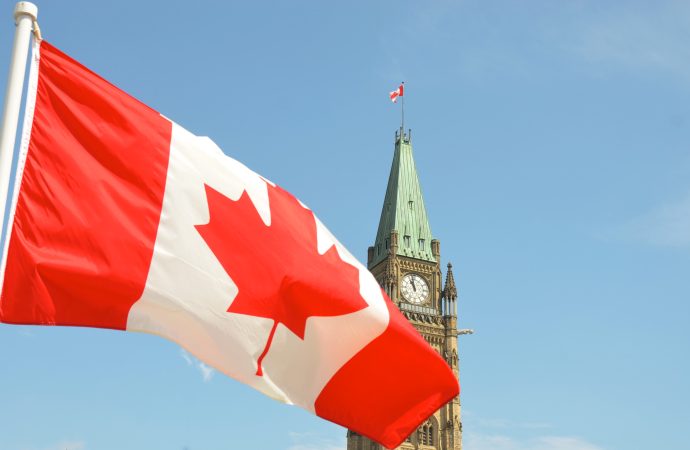On Monday, October 30 and Wednesday, November 1, Foreign Affairs Minister, Mélanie Joly, gave essentially the same speech at the Economic Club of Canada in Toronto and the Conseil des relations internationales de Montréal (CORIM) in Montreal. The speech was deemed a major foreign policy pronouncement meant to set out Minister Joly’s vision for Canada’s role and engagement internationally. The problem is that it doesn’t quite jive with the country’s, and her government’s, domestic political realities.
As we say in French, it ended up being a pétard mouillé (wet firecracker). At the time of writing, the two speeches have barely registered in the media and national policy discussions. When the media reported on the speeches, their focus was mainly on what the Minister said about the Hamas-Israel conflict at the beginning of the speech (to get it out of the way!).
It is unfortunate that Minister Joly’s speech fell flat. Given Canada’s longstanding lack of a coherent foreign policy, even an informal one, her outline of a fairly ambitious vision for Canada in international affairs is to be welcomed.
In light of the current turmoil in global affairs, it is important for Canadians to discuss Canada’s role in the world. The speeches were an opportunity to get a public discussion underway, at the very least among Canadian foreign policy experts. Alas, no such debate or discussion, anywhere, seems to be taking place, although a recent Léger survey of Canadians finds that 51 percent of respondents mention wanting more Canadian visibility in foreign diplomacy.
In her speeches, Mélanie Joly offered a long list of things that Canada wants and must do, especially in the Indo-Pacific and Arctic (surprisingly, perhaps, she completely ignored Africa and Latin America and only mentioned Europe to say that Canada should engage ASEAN like it does the European Union). Regrettably, she offered very little substance and details on how Canada will achieve all that she says she wants to do. That’s why her speech is mostly about vision.
Minister Joly talked about focusing on values, rules, sovereignty, resilience and “pragmatic diplomacy”. All these things sound nice in theory but it remains unclear how they all fit together. In practice, they require important compromises. What values or rules is she or her government willing to compromise to achieve sovereignty and resilience?
For example, is she willing to flout international trade rules to address climate change and achieve economic resiliency? Perhaps she is not, but her fellow industry minister, François-Philippe Champagne, has no qualms promising tens of billions of dollars in trade-distorting subsidies to bring foreign investments to boost Canada’s electric vehicle supply chain. And he does so all in the name of fighting climate change and protecting Canada’s economic future.
Minister Joly also talked about opening doors through pragmatic diplomacy, even if it means also talking to people who are not “like-minded”. Opening doors is not enough for effective diplomacy, however. It requires interlocutors to walk through the doors. And for that to happen, Canada must have something concrete to offer. Offering values, rules and sovereignty doesn’t sound very concrete (or pragmatic, to use the Minister’s term).
Minister Joly might have a vision for Canada to matter in international affairs, but her government’s domestic political reality means that it will most likely remain a wishful one.
And concrete offerings require money. That’s the part of Minister Joly’s speech that is missing. Where will the money come from to make good on the aspirations she outlined?
Given the political pressures that the government is facing from the business community and the opposition to cut spending and reduce the fiscal deficit (except for industrial subsidies, for which the sky seems to be limit!), it appears unlikely that Minister Joly will get the funds that she needs to realize her foreign policy ambitions.
Two years ahead of a federal election, with the Liberals trailing behind in polls among voters, we can expect the government’s focus to be primarily on domestic politics and its spending on domestic policies.
Minister Joly might have a vision for Canada to matter in international affairs, but her government’s domestic political reality means that it will most likely remain a wishful one. Perhaps that’s why so few people in this country seem to be paying attention to what she said. We may come to regret it!










